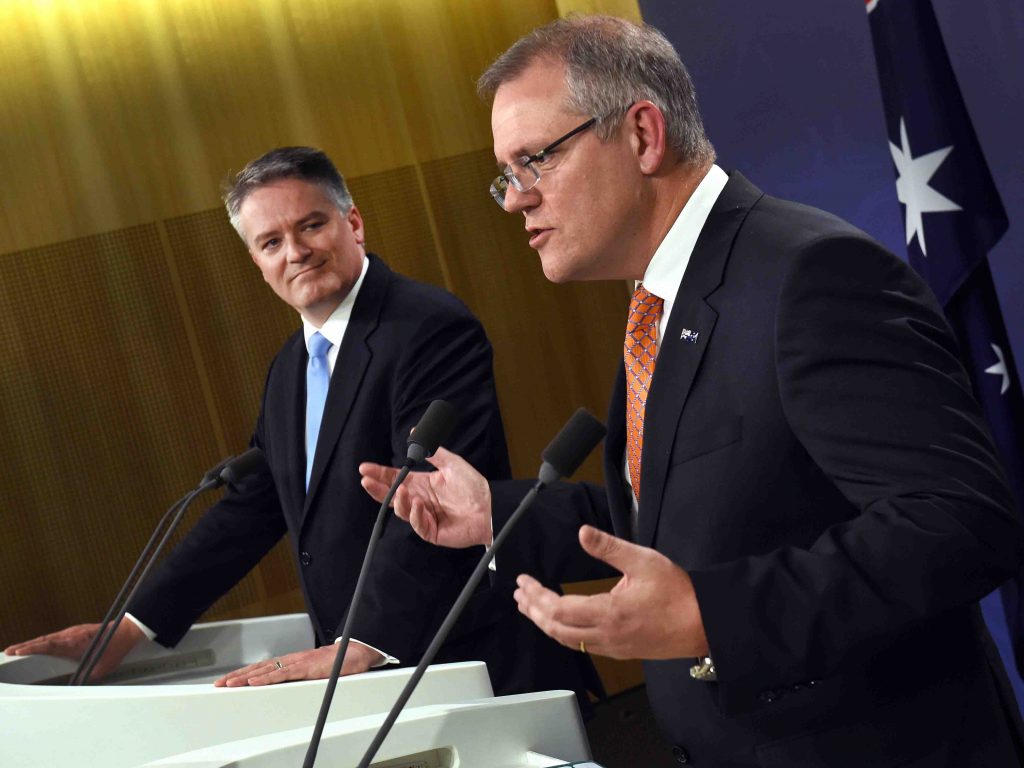Scott Morrison, PM, B.Sc. Just let that sit for a while. Then ask, ‘is this our most STEM-qualified Cabinet ever?’
It might surprise people, but Scott Morrison’s academic qualifications is a Bachelor of Science degree from the University of NSW; probably a first for an Australian Prime Minister.
It transpires that his honours study is in economic geography, but we can’t find out much more detail than that on the public record. How much this qualifies as STEM would depend on his other subjects and his approach to economic geography.

His first job working for the Property Council presumably drew on these skills. He then worked in tourism, which can be reasonably considered as a field of economic geography.
Possibly more impressive is the return of Karen Andrews, the former Parliamentary Secretary for Science, who joins Cabinet as Minister for Science, Industry and Technology.
She used her Bachelor of Engineering (Mechanical) from QUT to work in the power industry and then chemical and petrochemicals working in site design. Unfortunately her career then shifted into the world of human resources, particularly industrial relations. A longer stint as an engineer would be more rewarding.
The Nationals’ deputy leader Bridget McKenzie – who is now the Minister for Regional Services, Local Government and Decentralisation – has a Bachelor of Applied Science (Human Movement) and Bachelor of Teaching (Secondary), both from Deakin. Prior to entering Parliament she was a Mathematics teacher, and then lectured in education at Deakin.
Communications Minister Mitch Fifield studied Arts at the University of Sydney, though since his first job was in the army psychology corps he might just scrape in to our list. Christian Porter has an MSc from the London School of Economics, but being in political theory it is unlikely it has any STEM component.
The remainder of the Cabinet has more ‘traditional’ backgrounds with seven studying law, often with arts (Cormann, Pyne, Payne, O’Dwyer, Cash, Hunt and Price), three with business or economics (Birmingham, Dutton and Canavan) and five with both (Frydenberg, Ciobo, Porter, Fletcher and Taylor). The remaining two draw their qualifications from practice (McCormack in journalism, Littleproud in Agribusiness).
This is still an improvement, but one does wonder what it will take to move beyond affirmative action targets on gender or cultural background and start to include qualifications and skills. The biggest challenges that the Government has to deal with are often based in science.
Two big losers in the new Ministry are the concepts of ‘Innovation’ and ‘Digital.’ Innovation has completed its fall from grace fowling its initial downgrade post 2016, moving from Cabinet to being non-existent.
Digital transformation is now based in Social Services and may well have its ambitions limited even more to transformation of government service delivery rather than transformation of the economy.
There is, however, reason for hope. As Treasurer, Scott Morrison grasped the horns of part of the Productivity Commission’s Data Availability and Use inquiry (the Consumer Data Right). It will be unsurprising if carriage of the Data Sharing and Release Act moves from the Department of Prime Minister and Cabinet to Treasury.
Similarly, it will be very surprising if Karen Andrews doesn’t continue to pursue an innovation agenda inside Industry, Science and Technology. Certainly it is an advantage to no longer have innovation given lip-service as an adjunct to ‘Jobs’.
Those sectors of the economy interested in innovation can, overall, take heart. This is a slightly more STEM literate cabinet than we have seen in the past, and the ministers in the key portfolios understand the importance of innovation as a policy agenda rather than a slogan.
But the approach to government will need to be recalibrated, and the case for all the elements of an environment that encourages innovation will need to be made on their merits, rather than just the incantation of the magic words ‘innovation, ‘disruption’ and ‘digital.’
We have moved to the ‘post-abracadabra era.’
Do you know more? Contact James Riley via Email.

